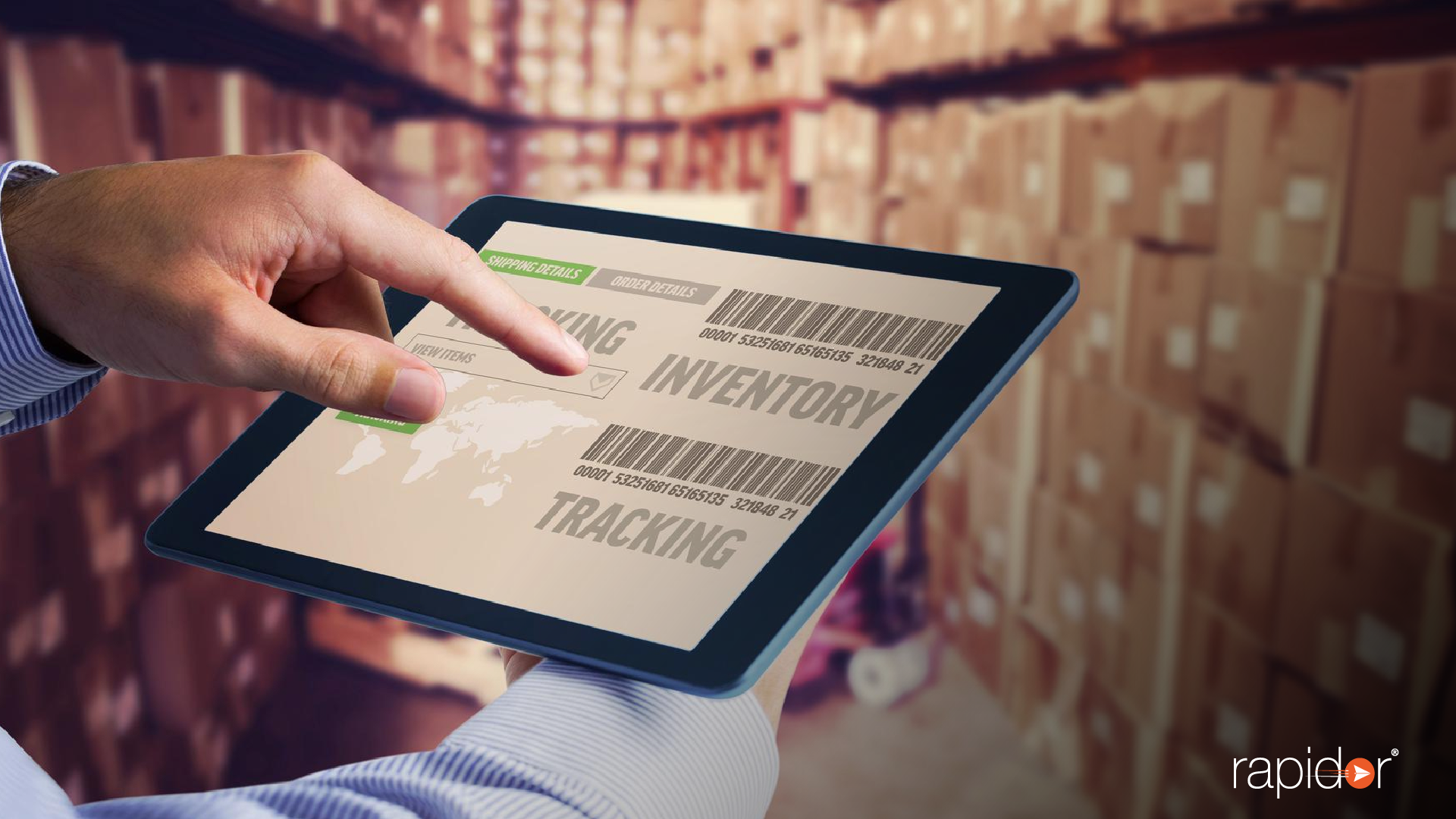In the high-stakes world of large enterprises, not having a robust Sales Management System is like sending a pilot into a cross-continental flight without navigational instruments.
Imagine the chaos and uncertainty that would ensue if an aircraft loaded with hundreds of passengers took off without the guidance of modern technology.
The aviation industry knows the importance of real-time data, precise navigation, and sophisticated control systems. Without them, the consequences would be disastrous.
Your business, much like an aircraft, is on a journey to reach new heights and overcome various obstacles in the ever-changing market landscape. And much like a pilot relies on advanced instruments, your sales team requires the right tools to guide them to success.
This blog is your captain’s log for understanding the pivotal role of data in today’s dynamic sales environment, akin to a pilot’s reliance on technology.
We’ll explore the challenges your sales team faces when operating without vital data and what it’s like navigating turbulent skies without instruments. More importantly, we’ll uncover how a Sales Management System can be the “cockpit” of your enterprise, providing the data-driven guidance your team needs to navigate, adapt, and soar to new business heights.
So, fasten your seatbelts and prepare for takeoff on this data-driven journey.
What Is a Sales Management System?
In the world of large enterprises and complex sales operations, a Sales Management System is akin to the control centre of a high-tech aircraft. It’s a sophisticated software solution designed to optimise your sales processes and help you navigate the ever-changing currents of the market.
A Sales Management System gathers, processes, and presents critical data, offering a panoramic view of your sales operations.
What is the Need for a Sales Management System?
In the competitive landscape of large enterprises, the need for a Sales Management System is undeniable. Without it, sales teams face many challenges due to the absence of vital data.
Here are some key challenges they encounter:
- Inaccurate Decision-Making: Without access to real-time data, sales teams make decisions based on assumptions rather than facts, which can lead to poor strategy and wasted resources.
- Inefficient Lead Management: Without a systematic approach to managing leads, valuable opportunities are often lost in the chaos. Important prospects might fall through the cracks.
- Limited Sales Forecasting: Accurate sales forecasting is vital for resource allocation and planning. The absence of data-driven forecasting can result in missed targets and revenue losses.
- Manual and Time-Consuming Processes: Without automation, sales processes become labour-intensive, reducing productivity and diverting resources from value-added tasks.
What is the Significance of Data in Sales?
Data is the lifeblood of successful sales operations. It provides the insights and intelligence needed to thrive in a competitive market.
Here’s why data is essential:
- Informed Decision-Making: Data-driven insights empower sales teams to make informed decisions. They can identify trends, customer preferences, and market dynamics, ensuring strategies are based on real evidence.
- Customer-Centric Approach: Data allows businesses to understand their customers more deeply. This knowledge helps tailor products and services to meet customer needs, increasing satisfaction and loyalty.
- Efficient Resource Allocation: With accurate sales forecasts and performance metrics, resources are allocated efficiently. This prevents waste and ensures that efforts are focused where they matter most.
- Market Segmentation: Data allows you to segment your market with precision. By identifying specific customer groups with distinct needs and preferences, you can tailor your strategies to resonate with each segment, maximising your outcomes.
- Personalization: One-size-fits-all approaches are out; personalization is in. Data empowers you to offer personalised product recommendations, content, and pricing, resulting in higher customer satisfaction and conversion rates.
How Data Can Refine Sales Strategies ?
In the world of sales, it’s not just about having data; it’s about how you use it.
Here’s how data can refine and optimise your sales strategies:
- Pricing Strategy: Data enables dynamic pricing, adjusting prices in real time based on demand, competition, and customer behaviour. This flexibility maximises revenue and profitability.
- Product Positioning: Data provides insights into which products or features resonate with customers. By fine-tuning your product positioning, you can emphasise what matters most to your audience.
- Marketing Campaigns: Analysing data helps you understand the effectiveness of your marketing campaigns. By allocating resources to the most successful channels and approaches, you can improve your return on investment.
- Predictive Analysis: Anticipate trends and customer behaviours through predictive analysis. By examining past data and patterns, you can make proactive decisions and stay ahead of the competition.
How Can Data Analytics Help in Understanding Customer Behaviours?
In the modern marketplace, understanding your customers is not just an advantage – it’s a necessity. Data analytics unlocks a treasure trove of insights into customer behaviour:
- Purchase Patterns: Analysing historical data can reveal patterns in customer purchasing behaviour. This knowledge lets you anticipate their needs and optimise sales and inventory management.
- Customer Journey Mapping: With data analytics, you can map the customer journey, identifying touchpoints and pain points. This holistic view lets you streamline the customer experience for higher satisfaction and retention.
- Feedback and Reviews: Data analytics can extract valuable information from customer feedback and reviews. You can use this data to improve your products, services, and overall customer experience.
Why Does Your Business Need Sales Automation Software?
Sales automation software is crucial in keeping your enterprise at the forefront of modern business practices. Here’s how it fits as a perfect solution for your sales team:
- Efficiency and Productivity: Automation reduces manual, time-consuming tasks, freeing your sales team to focus on strategic activities, nurturing relationships, and closing deals.
- Data Accuracy: Automation ensures that your sales data is consistently accurate and up to date. This reliability is essential for making informed decisions.
- Seamless Communication: Automation facilitates seamless communication within your sales team and with your customers. It ensures that everyone is on the same page and that customer interactions are consistent and professional.
- Lead Management: A sales automation software can efficiently capture, qualify, and nurture leads. It ensures that no potential opportunity falls through the cracks and that each lead is effectively managed.
- Workflow Automation: It streamlines your sales processes, ensuring that every step from lead acquisition to post-sale follow-ups is optimised for efficiency and consistency.
- Sales Forecasting: Accurate sales forecasting is a challenge without sales automation software. This technology provides real-time insights into sales performance, allowing you to make data-driven decisions.
How Does a Sales Management System Benefit Your Enterprise?

A Sales Management System proffers a set of benefits for any business:
- Data Centralization:
The importance of data in this dynamic world of sales cannot be overstated. Just as pilots rely on a precise understanding of altitude, speed, and weather conditions to ensure a safe flight, your sales team needs data-driven insights to make informed decisions and steer your enterprise toward success.
At its core, a Sales Management System serves as a centralised repository for all your sales data. It consolidates valuable information on customers, leads, transactions, and more. This data reservoir is the equivalent of having a meticulously organised library at your disposal, where every piece of information is readily accessible.
- Streamlined Workflows:
A Sales Management System automates and streamlines many aspects of your sales processes. It helps in lead management, sales forecasting, sales automation, inventory management, management of field sales, van sales automation, live van tracking software, and performance analysis, allowing your team to focus on what they do best – selling.
- Reporting and Analysis:
With sales automation software, you can generate comprehensive reports, providing insights into sales performance, customer behaviour, and market trends. This data-driven approach empowers your enterprise with informed decision-making capabilities.
- Customer Relationship Management (CRM):
An integral part of the system is the CRM component, which helps in maintaining and nurturing customer relationships. Much like a skilled concierge ensuring a pleasant stay at a luxury hotel, the CRM in sales management software ensures customer satisfaction and retention.
How Does Sales Management Software Enhance Your Customer Experiences?
Enhancing customer experiences is a top priority for any business. Here’s how sales management software contributes to this goal:
- Personalization: Data-driven insights allow you to offer personalised experiences, content, and recommendations, creating higher customer satisfaction.
- Efficient Issue Resolution: Automation and data access enable quick issue resolution, resulting in happier customers.
- Timely Communication: Automated follow-ups, reminders, and personalised messages keep customers engaged and informed, strengthening their relationship with your brand.
Sales automation software and data-driven sales management systems are not mere tools but transformative agents of change for your enterprise.
They optimise operations, empower data-driven decision-making, and elevate customer experiences, giving your business the competitive edge to thrive in the modern business landscape.
Is Your Enterprise Prepared for the Management of Field Sales?
Field sales represent a critical component of your enterprise’s sales strategy. Managing field sales efficiently ensures that your resources are allocated where they matter most, maximising the impact of your sales efforts.
One of the key aspects of field sales is having real-time access to data. Field sales management solutions provide this capability, allowing your sales representatives to make well-informed decisions while in the field. This not only enhances their productivity but also boosts their effectiveness in dealing with clients.
Moreover, field sales management software plays a significant role in customer engagement. In-person interactions are invaluable for building strong customer relationships and gaining a deep understanding of their needs. These solutions empower your team to connect with customers personally, leading to more meaningful and effective interactions.
Chart Your Path to More Profits with the Data-Driven Sales Management System!
In the dynamic world of sales, where change is the only constant and competition is fierce, having the right tools at your disposal is non-negotiable.
It’s time to fasten your seatbelts and embrace the data-driven sales management system because your journey to sales success begins now.


